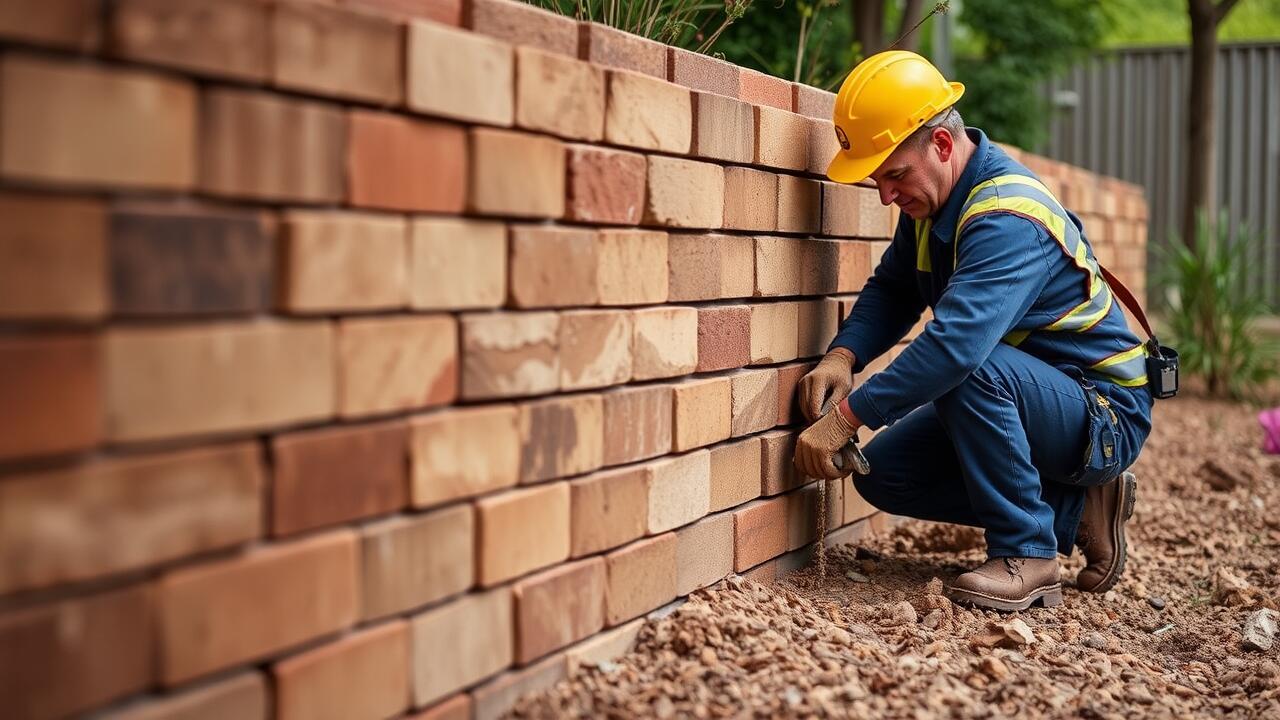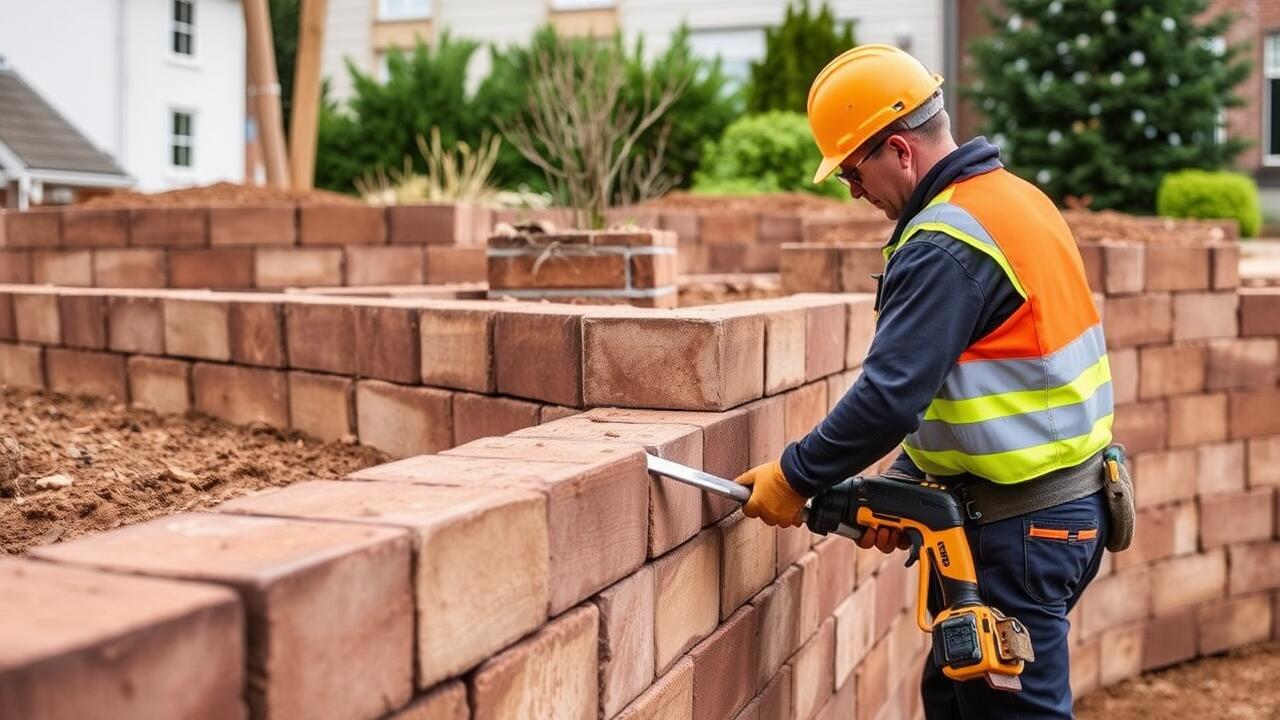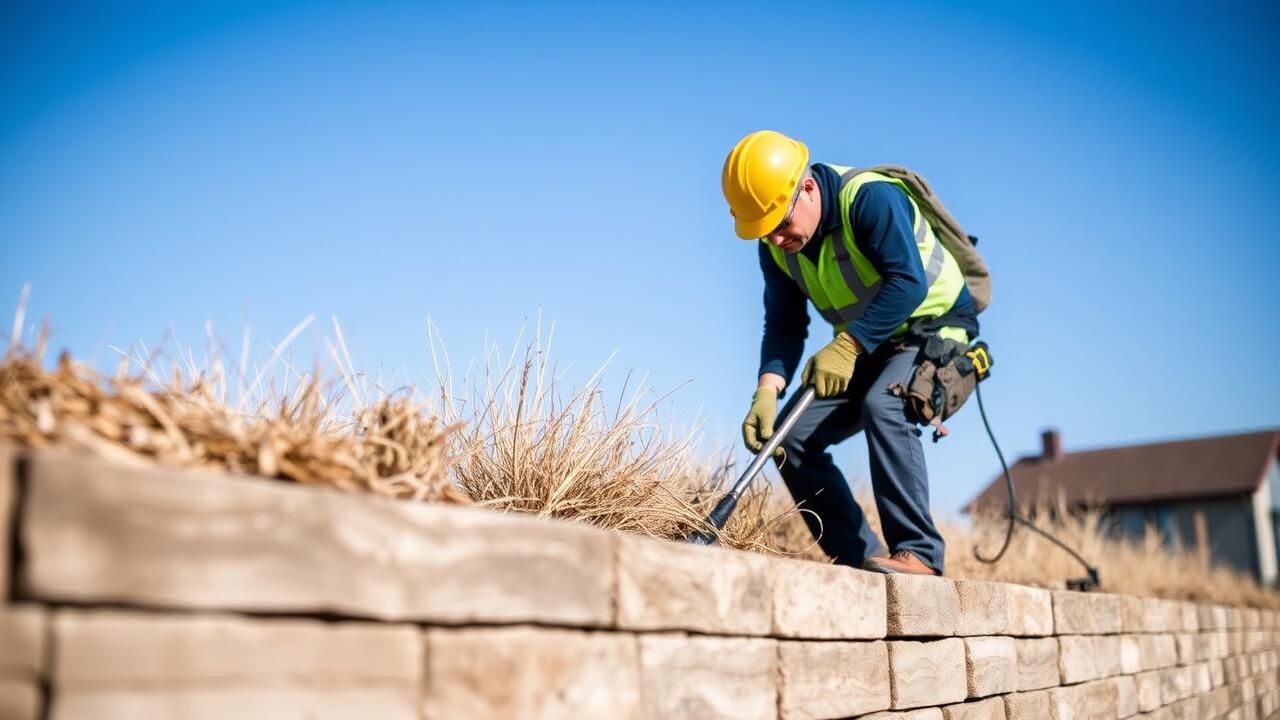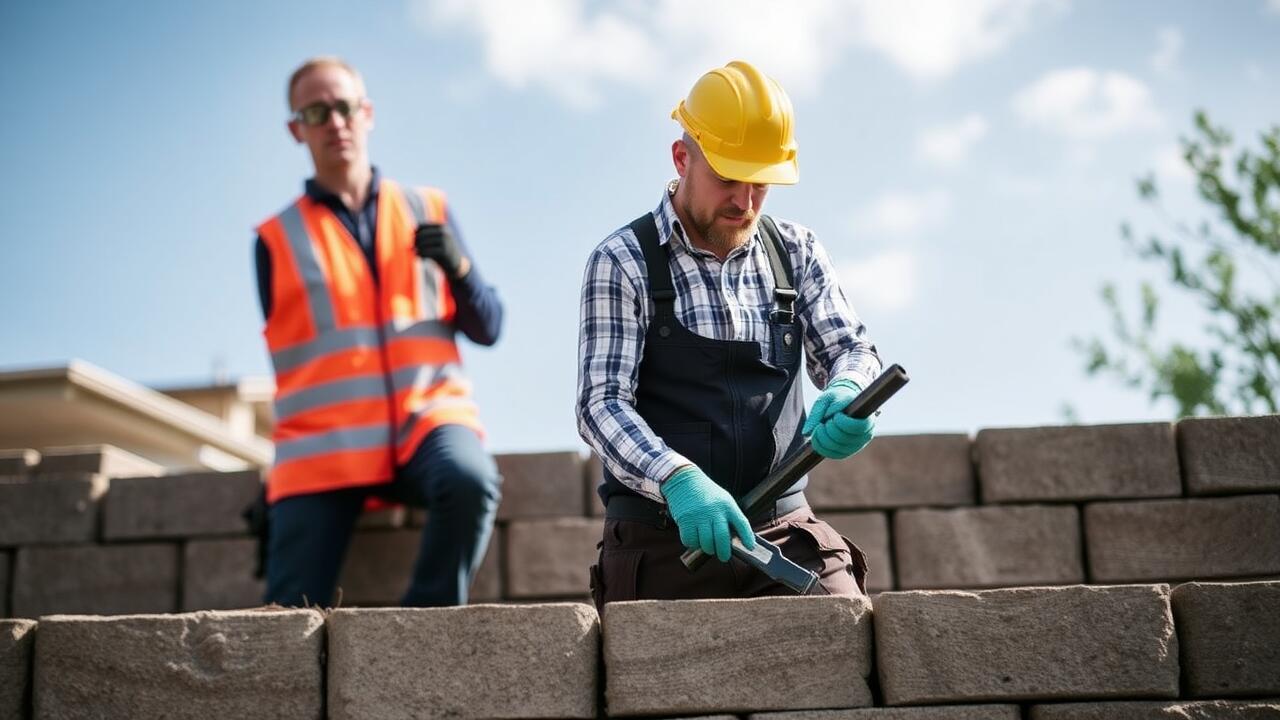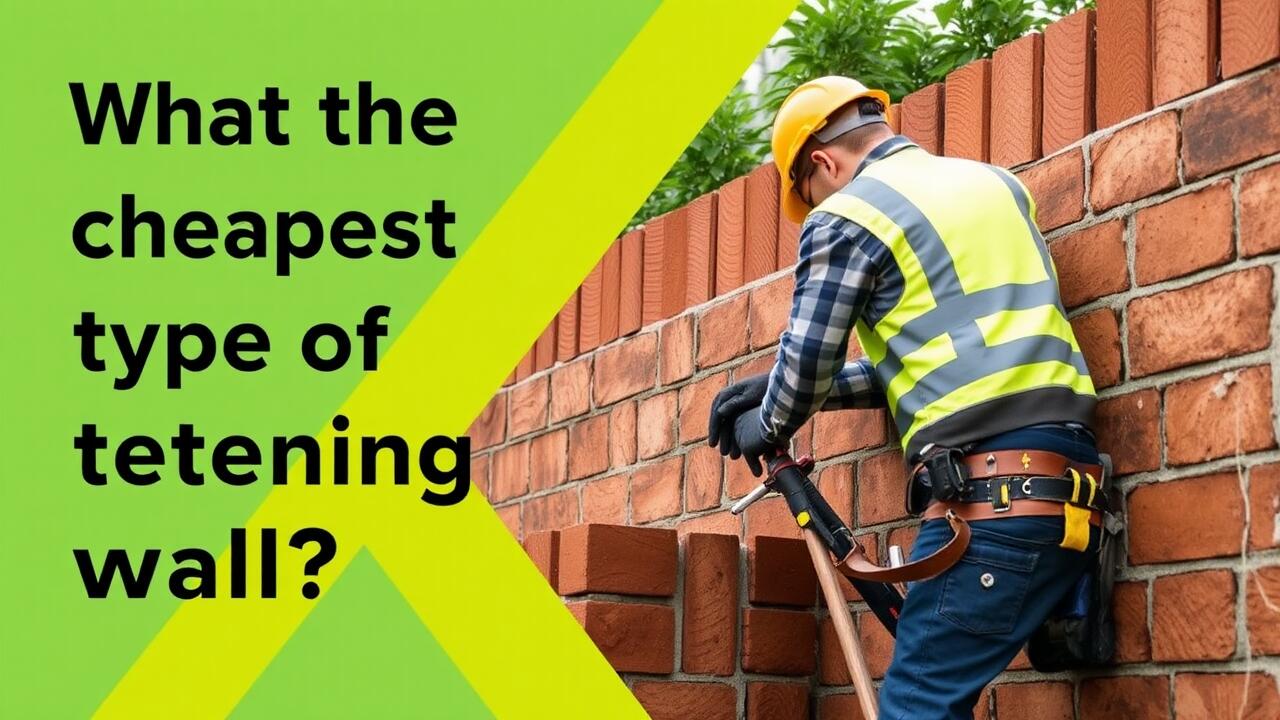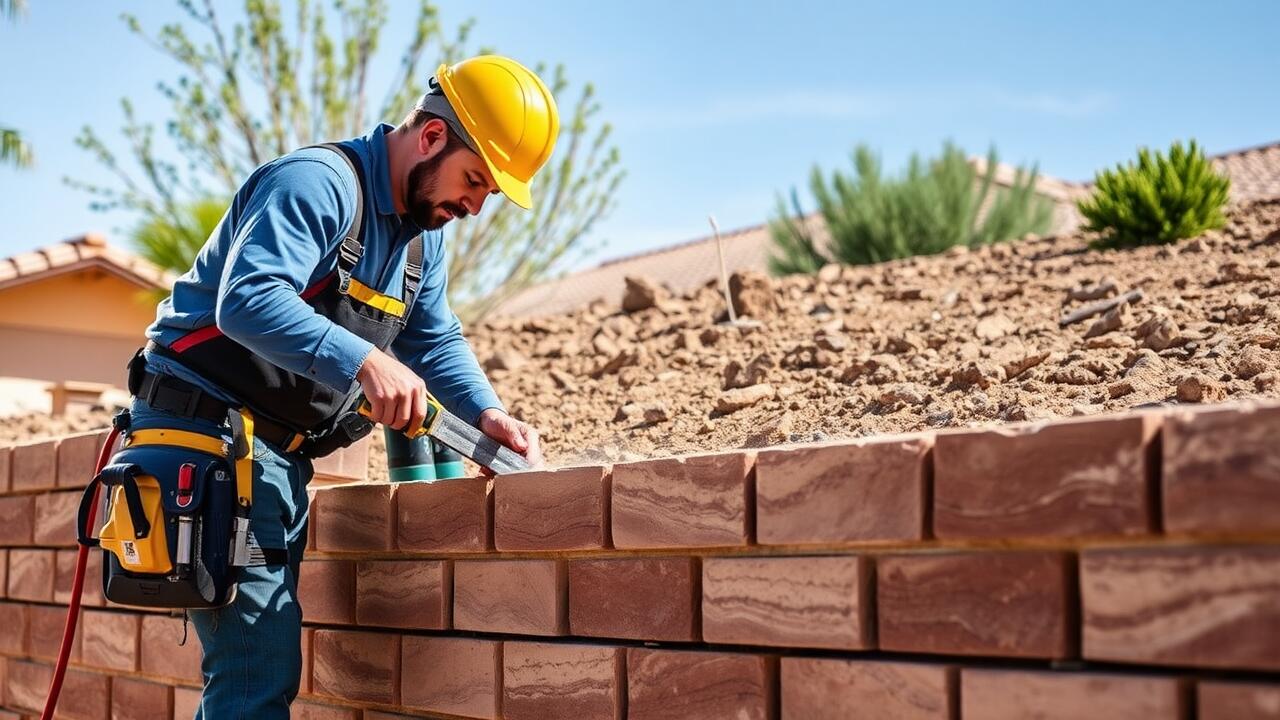
Additional Features That Impact Cost
Adding additional features to a retaining wall can significantly affect the overall cost of the project. Elements such as decorative stones, built-in seating, or integrated lighting can elevate both functionality and aesthetic appeal. These features not only enhance the visual appearance but may also require advanced design skills and additional materials, leading to higher costs. Homeowners planning Retaining Wall Installation in Deer Valley, Phoenix should consider their preferences and budget for these extras early in the planning process.
Another important aspect to consider is the inclusion of drainage systems. Proper drainage is crucial to the longevity of a retaining wall, especially in regions with fluctuating rainfall. Including drains can prevent water buildup and erosion, potentially saving money in repairs down the line. This consideration is especially vital for Retaining Wall Installation in Deer Valley, Phoenix, where the local climate may necessitate more robust solutions to manage stormwater effectively.
Drainage Systems and Landscaping
Proper drainage is crucial when planning a retaining wall since it significantly affects the wall's longevity and functionality. In Arizona, where heavy rains can occur sporadically, an effective drainage system can prevent water accumulation behind the wall. This can mitigate the risk of erosion and structural failure over time. When considering Retaining Wall Installation in Deer Valley, Phoenix, incorporating suitable drainage solutions, such as weep holes or gravel backfill, is essential to facilitate water movement and ensure stability.
Landscaping features also play a vital role in enhancing the aesthetics and effectiveness of a retaining wall. Well-thought-out landscaping can complement the retaining wall while addressing any potential drainage issues. Plants that can thrive in Arizona’s climate and soil conditions can be selected to surround the wall, adding both beauty and functionality. Proper vegetation can contribute to soil stabilization, further supporting the structure. When engaging in Retaining Wall Installation in Deer Valley, Phoenix, careful selection and placement of landscaping elements can optimize both the visual appeal and practical performance of the wall.
Maintenance Costs Over Time
Maintaining a retaining wall involves several ongoing costs that homeowners should consider when planning for long-term investment. Regular inspections can help identify any structural issues or signs of wear and tear. Depending on the material used, some retaining walls may require periodic sealing or repairs to prevent damage from weather conditions. Investing in these maintenance practices can extend the life of the wall and help avoid costly repairs down the road.
For those who have opted for Retaining Wall Installation in Deer Valley, Phoenix, it’s essential to account for local climate factors that can influence maintenance needs. Extreme temperatures and monsoon seasons can lead to increased wear on materials. Additionally, managing vegetation around the wall may necessitate regular landscaping efforts to prevent roots from compromising the wall's stability. Being proactive about maintenance not only preserves the aesthetic appeal but also ensures the wall's functionality in the long term.
Long-Term Investment Considerations
Investing in a retaining wall can significantly enhance both the aesthetics and functionality of a property. Over time, a well-constructed wall offers added value to the landscape, guiding water drainage effectively and preventing soil erosion. For homeowners in areas like Deer Valley, Phoenix, the benefits extend beyond immediate utility, as a sturdy retaining wall can elevate property values by improving curb appeal. Understanding the long-lasting impacts of such an investment is crucial for any homeowner considering this addition.
The durability of materials used in retaining wall installation typically plays a significant role in long-term cost considerations. While initial expenses may be on the higher side, investing in quality materials can lead to lower maintenance and repair costs in the future. In regions like Deer Valley, Phoenix, where specific weather conditions can impact landscape stability, opting for resilient materials ensures that the wall will withstand environmental challenges over its lifespan. The right choice now can translate into considerable savings and benefits down the road.
Seasonal Considerations for Construction
Building a retaining wall in Arizona requires careful consideration of seasonal weather patterns. The intense summer heat can impact the construction process, as high temperatures may affect the materials used and the workability of the site. Rainy conditions during the monsoon season can also pose challenges, potentially leading to soil erosion and complications in drainage. These factors make timing crucial for ensuring a successful installation.
For areas like Deer Valley in Phoenix, planning the project for the cooler months can lead to better outcomes. Fall and spring provide more temperate weather, allowing contractors to work efficiently and safely. Scheduling Retaining Wall Installation in Deer Valley, Phoenix, during these periods can enhance quality and reduce potential issues related to heat or unexpected storms.
Ideal Times for Building in Arizona
Building a retaining wall in Arizona requires careful consideration of seasonal weather patterns. The ideal time for construction often falls between late fall and early spring. Temperatures during these months are moderate, making outdoor work more manageable. Additionally, rainfall is typically lower, minimizing disruptions and ensuring that the site remains dry and workable.
For those specifically looking into Retaining Wall Installation in Deer Valley, Phoenix, planning the project during the cooler months can also help avoid the extreme heat which can affect both workers and materials. The pleasant weather conditions not only allow for a more efficient construction process but also contribute to the durability of the wall by ensuring that the materials set properly in a stable environment.
FAQS
What is the average cost of building a retaining wall in Arizona?
The average cost can vary widely based on materials and design, but it generally ranges from $15 to $50 per square foot.
How do additional features impact the cost of a retaining wall?
Features such as drainage systems, landscaping, and lighting can significantly increase the overall cost, as they require additional materials and labor.
Are there long-term maintenance costs associated with retaining walls?
Yes, retaining walls may require periodic maintenance such as repairs, sealing, or landscaping updates, which can add to the long-term investment.
What is the best season for building a retaining wall in Arizona?
The ideal times for construction are typically in the spring and fall, when temperatures are more moderate and the weather is less likely to cause delays.
Can I save money by building the retaining wall myself?
While DIY can reduce labor costs, it’s important to consider your skill level and the potential risks involved, as improper construction can lead to more expensive problems down the line.
